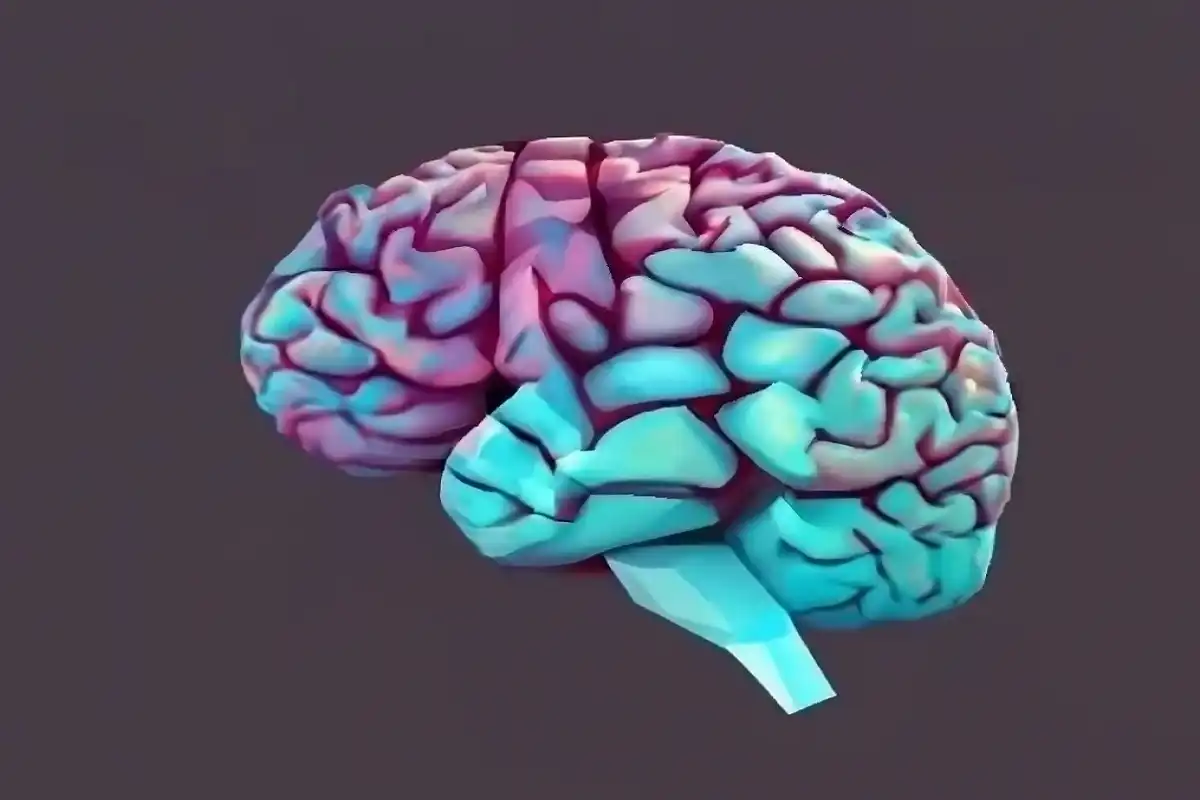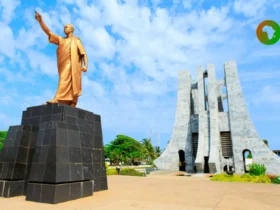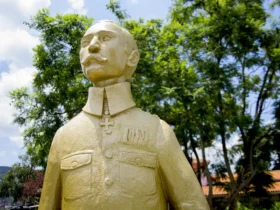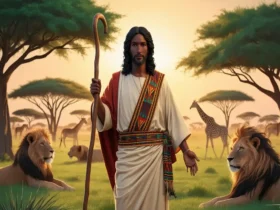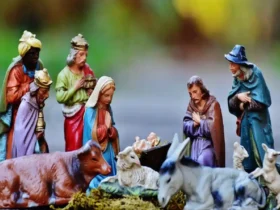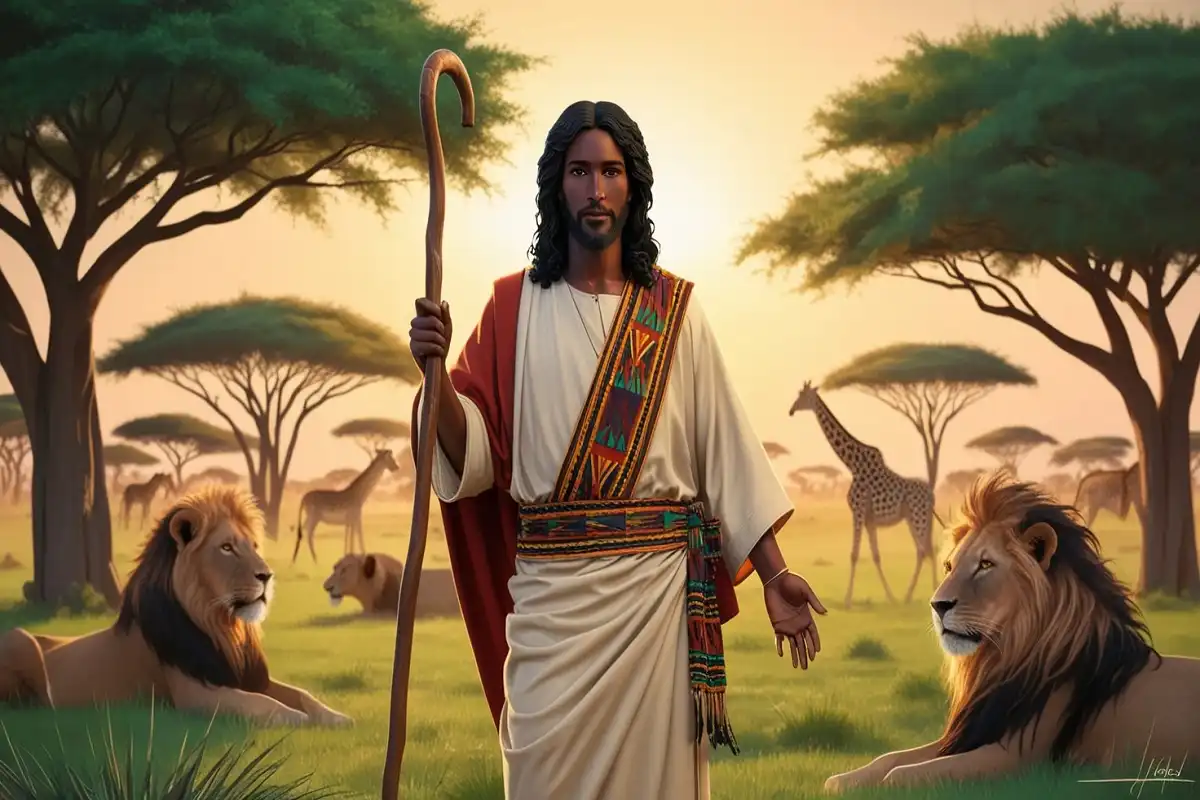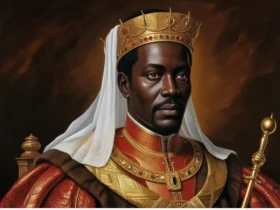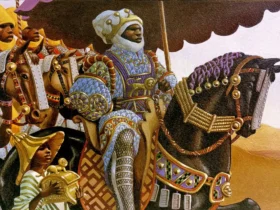Biblical Connections to Africa : History of Jesus in Africa
Africa plays a notable role in the biblical narrative, establishing early connections to Jesus and his story: Watch this Video for better Understanding
- Egypt as a Place of Refuge: According to the Gospel of Matthew (2:13–15), the infant Jesus and his family fled to Egypt to escape King Herod’s decree to kill male children in Bethlehem. This journey is often interpreted as a symbolic link between Africa and the preservation of divine purpose.
- Old Testament Links: Africa is referenced in biblical texts, particularly through the regions of Cush (modern Sudan/Ethiopia) and Egypt. Figures such as the Queen of Sheba (1 Kings 10:1-13) highlight early intersections of African culture and Judeo-Christian tradition.
- Simon of Cyrene: In the New Testament, Simon of Cyrene, a man from North Africa (likely modern-day Libya), is compelled to carry Jesus’ cross (Mark 15:21). This act connects Africa directly to the crucifixion narrative.
Early Christianity in Africa : History of Jesus in Africa
Christianity spread to Africa shortly after its inception, leaving an indelible mark on the continent.
- Alexandria and Early Theologians:
- Alexandria as a Christian Hub: By the 1st century CE, Alexandria in Egypt became a significant center for Christian thought and scholarship.
- Key Figures: Prominent theologians such as Origen, Clement of Alexandria, and Athanasius played vital roles in shaping early Christian doctrine. Athanasius, in particular, was instrumental in the development of the Nicene Creed.
- The Ethiopian Church:
- According to tradition, Christianity was introduced to Ethiopia in the 4th century by Frumentius and Aedesius, two Syrian brothers shipwrecked on the Ethiopian coast.
- King Ezana of Aksum embraced Christianity, making it one of the first nations to adopt Christianity as a state religion. The Ethiopian Orthodox Church remains a vital institution, preserving ancient liturgical practices.
- North Africa’s Christian Heritage:
- North Africa, particularly Carthage (modern Tunisia), was a vibrant center of early Christian activity.
- Theologians like Tertullian and Cyprian of Carthage contributed to Christian theology and the defense of the faith during Roman persecution.
Christianity in Sub-Saharan Africa (Medieval Period) :History of Jesus in Africa
For centuries, Christian influence was predominantly concentrated in North and East Africa. However, interactions with Sub-Saharan Africa expanded gradually.
- Medieval Kingdoms:
- Christian influences reached Nubia and the kingdoms along the Nile, such as Makuria and Alodia, which adopted Christianity around the 6th century.
- These kingdoms maintained Christian traditions despite later Islamic conquests.
- Challenges and Decline:
- By the 7th century, the spread of Islam posed significant challenges to Christianity in Africa. Many regions in North Africa and the Horn of Africa experienced Islamic dominance, leading to the decline of Christian communities.
The Portuguese and Missionary Era (15th–19th Century) : History of Jesus in Africa
The arrival of European explorers and missionaries marked a new chapter in the history of Jesus in Africa.
- Portuguese Influence:
- Portuguese explorers introduced Catholicism to West Africa and the Kongo Kingdom. King Nzinga a Nkuwu of Kongo converted to Christianity in the late 15th century, taking the name João I.
- Jesuit missionaries sought to establish Christian communities, though their efforts faced challenges from traditional beliefs and political dynamics.
- Protestant Missionaries:
- The 18th and 19th centuries saw the arrival of Protestant missionaries from Europe and America.
- Missionaries like David Livingstone and Mary Slessor played key roles in spreading Christianity to southern and central Africa, often intertwining their work with anti-slavery campaigns.
African Christianity in the Modern Era : History of Jesus in Africa
The 20th and 21st centuries witnessed the explosive growth of Christianity in Africa, reshaping its cultural and spiritual landscape.
- Rise of Independent Churches:
- Indigenous Christian movements emerged, blending traditional African spirituality with Christian teachings.
- Examples include the Zion Christian Church in South Africa and the Aladura Churches in West Africa.
- Pentecostal and Evangelical Movements:
- Pentecostalism gained prominence across Africa, emphasizing personal conversion, spiritual gifts, and energetic worship.
- Evangelical missions have expanded, focusing on translating the Bible into local languages and addressing social issues.
- African Theologians and Contextual Theology:
- African theologians like John Mbiti and Kwame Bediako have emphasized contextual theology, integrating African culture and values into Christian doctrine.
- Liberation theology in South Africa, exemplified by figures like Desmond Tutu, combined Christian ethics with the fight against apartheid.
Impact of Jesus’ Teachings in Africa : History of Jesus in Africa
The influence of Jesus’ teachings in Africa is evident in various spheres:
- Social Transformation:
- Christianity has contributed to advancements in education, healthcare, and social justice across Africa.
- Missionary-founded schools and hospitals remain central to community development.
- Cultural Expressions:
- African Christians have infused their worship with local languages, music, and traditions, creating vibrant and unique expressions of faith.
- Challenges and Controversies:
- The legacy of missionary activities has been critiqued for its association with colonialism and cultural imposition.
- However, modern African Christianity has increasingly reclaimed its identity, emphasizing indigenous leadership and contextual relevance.
Conclusion of History of Jesus in Africa
The history of Jesus in Africa is a testament to resilience, adaptation, and spiritual depth. From biblical connections to the flourishing of Christianity across the continent today, the story reflects a dynamic interplay between faith and culture. Jesus’ teachings continue to inspire millions, shaping the moral and social fabric of African societies and contributing to a global understanding of Christianity’s diversity.
See also Christmas Day: The top Origin and History of Jesus Christ Birthday







